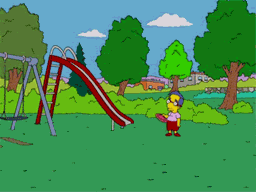I took the same mentality to learning biblical languages in undergrad and in seminary. Most of us studying Greek and Hebrew grew weary of looking words up all the time, especially if you had to bring a huge lexicon with you to the library. There were 2 main options for handling this dilemna: (1) using something like BibleWorks to look up the definitions or (2) learning the vocab necessary to translate. I always felt that option (1) was cheating a bit, and truth be told, most who relied on BibleWorks (or other similar programs) didn't really learn the language. I preferred option (2), though possibly more due to my pride rather than my industrious nature.
So, I'll admit to some initial hesitation in using the Reader's Hebrew Bible because it feels a bit like option (1). You see, the RHB gives the Hebrew text (from the Westminster Leningrad Codex), with vocabulary helps. Every word that occurs less than 100 times is footnoted and given a gloss from HALOT and BDB, probably the top 2 Hebrew lexicons around (they do use a couple others, but these are the primary ones). Proper nouns that occur less than 100 times are shaded grey rather than footnoted, which I'll be extremely grateful for if I ever decide to translate Chronicles. (For the Aramaic portions, it's anything used less than 25 times, but I don't know Aramaic so I can't comment on those portions).
Swallowing my pride and receiving help on the vocab is a good idea for me right now, since my Hebrew has slipped significantly. My understanding of grammar is mostly still there, but that only means so much if you don't know what
 any of the words mean, right? I started off by reading some of Ruth (which is generally one of the first books Hebrew students translate, often right after Jonah). I was certainly rusty, but the vocab footnotes really helped (and it doesn't hurt that there's a glossary at the back of the book for words used over 100 times- oh how far I've fallen!). Since then I've bounced around a bit to get a feel for different sections (prophets, Psalms) and get the sense that this is a really helpful resource for those of us whose Hebrew vocab has dwindled drastically.
any of the words mean, right? I started off by reading some of Ruth (which is generally one of the first books Hebrew students translate, often right after Jonah). I was certainly rusty, but the vocab footnotes really helped (and it doesn't hurt that there's a glossary at the back of the book for words used over 100 times- oh how far I've fallen!). Since then I've bounced around a bit to get a feel for different sections (prophets, Psalms) and get the sense that this is a really helpful resource for those of us whose Hebrew vocab has dwindled drastically.Most book reviewers talk about the printing and binding and use words like "attractive" or "handsome", but quite frankly, I can't get into that. My wife is attractive. A book is a book. It looks cool, and I feel smarter having it in my possession, and the binding seems strong enough that it won't fall apart any time soon, which is good since it'll be costly to replace. The book is huge (weighing in at 1600+ pages), which means I probably won't be lugging it to church any time soon.
Note well, this is not really a tool for in depth translation or exegesis. Not to say it isn't useful for that, but the glosses given are possible (largely unnuanced) glosses, it cannot replace doing the hard work of a word/concept study, nor does it include any help in syntax. Also, there is not critical apparatus (textual variants), which one needs in order to do true translation work. There is an appendex that shows the differences between the WTC and the BHS, though that doesn't account for the DSS or the LXX (yes, I used all abbreviations to feel like a VIP, recall Good Morning Vietnam). None of this is a criticism, since that's not the point of the book (otherwise it'd be called A Translator's Hebrew Bible).
All this to say, it's a great resource, one I plan on using as I work my way back into the Hebrew language. But, as much as I like it, I hope to graduate back up to my much smaller BHS that doesn't have the vocab helps. I know I'll never reach the point where I'll know all the vocab, but it'd be nice to be able to read without having to stop and look up definition a couple times every verse. I feel like I'm running laps again, and I hate running laps.
Note: Thanks again to Chris for providing this review copy.









2 comments:
thanks baby.
Now that's an interesting response to a book review. =)
Post a Comment